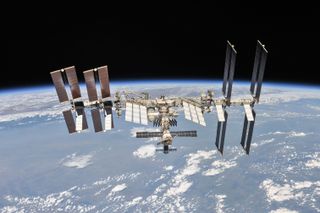
Amazon warehouse worker AFP/File
A new report out Tuesday accuses Amazon of having an "abysmal health and safety record" as a result of its obsession with production speed, pointing to worker injury rates that are far higher than those across the warehouse and shipping industry.
The analysis, Primed for Pain: Amazon's Epidemic of Workplace Injuries, was released by the Strategic Organizing Center (SOC), a collection of four labor unions, and comes amid sustained scrutiny over the company's mistreatment of workers amid soaring profits.
The report is based on data Amazon provided to the federal Occupational Safety and Health Administration (OSHA) and covers the four-year period 2017-2020.
"Every day is just go, go, go," said Safiyo Muhamed, a former worker at an Amazon fulfillment center in Shakopee, Minnesota for two and a half years who suffered a slipped disc in her back while lifting a heavy tote.
"Amazon wants you to work like a robot, like a machine," she said in a statement. "Every week they rank you, they monitor you through the computer. You have to be so fast. Humans aren't able to do it."
Muhamed's assessment is unsurprising given the report's assertion that "Amazon's obsession with speed in every part of its business has been a key element of its growth strategy."
"But the company's obsession with speed has come at a huge cost for Amazon's workforce," the report states.
Amazon's workforce grew from 208,764 workers in 2017 to 581,624 in 2020. There were injuries at 191 facilities in 2017, and at 658 facilities in 2020.
The data showed "substantially higher rates of workplace injuries" for Amazon workers compared to those in the same industry at other companies, the analysis found.
In 2017, Amazon had 11,883 recordable injuries—about 87% of which were injuries that made workers unable to perform their regular job functions (light duty) or forced them to miss work (lost time).
In 2020, there were 27,178 recordable injuries, 90% of which forced workers into light duty or lost time. That rate is more notable, the report said, because the coronavirus pandemic forced Amazon to make "massive operational changes" in 2020 that likely lessened speed.
While the warehouse industry is notoriously dangerous, the report says that Amazon's injury rate was still well above those of other warehouse employers.
"In all four years for which data are available, Amazon's rate of injuries per 100 warehouse workers is substantially higher than it is for non-Amazon employers in the general warehouse industry," the report states.
In 2020, for example, there were 6.5 injuries per 100 Amazon warehouse workers and just 4.0 injuries per 100 at all other warehouses.
What's more, the injuries suffered by Amazon workers are more severe. Singling out 2020 again, the report says there were 5.9 serious injuries per 100 Amazon workers—a rate that's about 80% higher than those of other warehousing industry employers.
The analysis also compared Amazon with retail e-commerce competitor Walmart. "In 2020, Amazon's overall warehouse injury rate (6.5/100 FTEs) was over twice that of Walmart (3.0), while Amazon's severe injury rate (2.6) was more than two-and-a-half times Walmart's."
SOS gathered further data from a February 2021 survey of 996 Amazon workers across 42 states. Forty-two percent of those queried said a workplace injury caused them to miss work, and roughly 80% of those attributed their injury to production pressure or speed.
Another finding from that survey: 52% said that since the pandemic broke out, Amazon has either terminated, disciplined, or threatened workers who don't keep up with the work pace.
"Workers' accounts of extreme production pressure in 2021 suggest that Amazon's reduced injury rates during Covid may not be sustained as the company returns to its previous practices," the report warns.
That wouldn't be unpredictable, according to the analysis.
"Amazon's abysmal health and safety record is not an accident," the report states. "Rather, it is the predictable outcome of a company that prioritizes speed, growth, and profits over the health and safety of its employees."
"Unfortunately," the publication continues, "this alarming rate of serious workplace injuries is likely to continue unless Amazon is forced by workers and others to take long-term meaningful action to make its workplaces safer."
Eric Frumin, SOC's director of health and safety, didn't mince words in his assessment of Amazon's duty to workers.
"By effectively ignoring the obvious consequences of their own decisions," said Frumin, "Amazon's leaders have failed in their legal, ethical, and moral responsibility to protect their own employees from serious hazards and the very real danger of career-threatening injuries."











